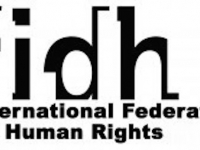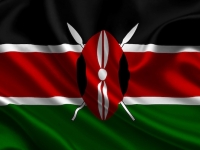Politics
Mission on the situation on human rights defenders and NGOs in Kenya
Before the 2017 elections
USPA NEWS -
The Kenyan authorities have the responsibility to protect civil society organisations and defenders, rather than harass them“, said the Observatory for the Protection of Human Rights Defenders (a joint OMCT-FIDH partnership), following a fact-finding mission to Kenya, ahead the elections 2017.
“The Kenyan authorities have the responsibility to protect civil society organisations and defenders, rather than harass them“, said the Observatory for the Protection of Human Rights Defenders (a joint OMCT-FIDH partnership), following a fact-finding mission to Kenya. In the context of the upcoming elections, high levels of police violence and patterns of criminalisation, especially during peaceful demonstrations and counter-terrorism actions, are two of the main concerns identified by the mission. In addition, civil society has been for too long waiting for an adequate legal framework ensuring an enabling environment, free from abuse and arbitrariness.
The delegation, who conducted a fact-finding mission to Kenya from October 24 to 28, met with several representatives of the Kenyan civil society, ranging from international to grassroots organisations,from the capital and other regions of the country. The delegates also met with several national authorities such as the Kenyan National Commission on Human Rights, the Parliamentary Caucus on Human Rights, the National Police Service, the Independent Policing Oversight Authority, the Office of the Director of Public Prosecutions and the Judiciary, as well as with the diplomatic community in Nairobi.
The three mission delegates highlighted three major areas of concern that severely undermine the very existence of an enabling environment for human rights defenders to freely and legitimately operate.
First, the high levels of police violence often experienced and reported by human rights defenders, especially when trying to hold accountable public officials for the violations committed, put at risk their physical and psychological integrity. These acts of violence include acts of torture, enforced disappearances and extra-judicial killings, including under the guise of combating criminality through “security“ and “counter-terrorism“ operations. “The killing of Willie Kimani, Kenyan human rights lawyer, last June, is only the tip of the iceberg of a worrisome pattern of extrajudicial killings, which appear to be increasing and which aim at silencing dissenting voices and perpetuating police and other security forces´ impunity. We urge the competent national authorities to end the widespread impunity for such cases and ensure speedy investigations and prosecutions in order to hold perpetrators to account“, declared Peter Zangl, Representative of the World Organisation Against Torture (OMCT) to the European Union, who led the mission. Source FIDH
Liability for this article lies with the author, who also holds the copyright. Editorial content from USPA may be quoted on other websites as long as the quote comprises no more than 5% of the entire text, is marked as such and the source is named (via hyperlink).







